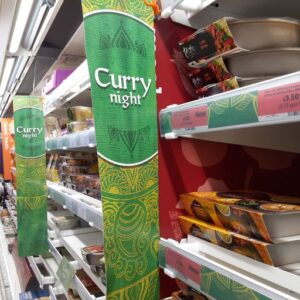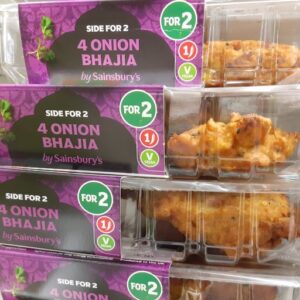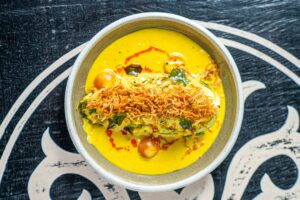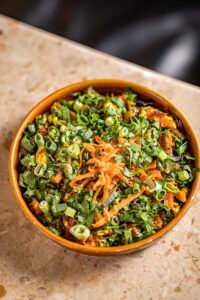3,713 people reached on LinkedIn – 70 Likes – 10 comments
421 people reached on Instagram – 32 Likes
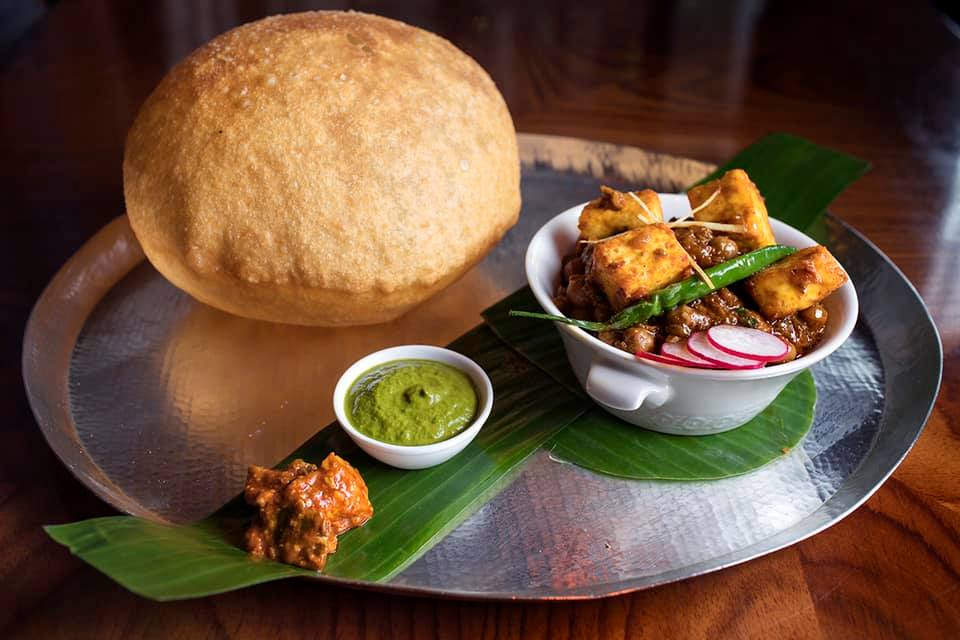
How the Vegetarian Raj Conquered the British Raj
How Saag Paneer took over the Empire….
Imagine living in a carnivorous – and coronavirus – world in the heart of London – and yet exploring soul-satisfying vegetarian food for 20 days! A diehard vegetarian, I was visiting from New York in November 2021 and staying with relatives who all are meat-eaters. Since I would rather starve than eat anything that moves, the challenge was to find the British essence of what vegetarian food could be – and is, when you look in the right places.
During those three weeks I discovered some great resources for vegetarians as well as the fact that Indian food in London is amongst the best in the world. Vegetarian food is now available in almost all cuisines and it is a combination of philosophical, moral and health aspects in thinking which have made vegetarian and vegan food a growing trend in London.
The travel site Wanderlust recently did a listing of the top vegetarian-friendly countries to visit and while India was No. 1, Sri Lanka No 2, surprisingly Italy was No.3 and the United Kingdom bagged the No 7 spot (4, 5 and 6 were Lebanon, Indonesia and Taiwan). Travel Off Path, another travel site listed Israel as the No.1 country for vegetarian and vegan friendly-food while India actually came in 2nd. It seems Tel Aviv calls itself the Vegan Capital of the World and at least 5 percent of the population classifies as vegan and 13 percent as vegetarian. According to this site, the UK is No.6 on the list – In 2018 the UK launched more vegan products than any other country and had an almost 1000 percent increase in demand for plant-based foods.
The U.K. capital came on top for a second year, in the rankings put together by HappyCow, which claims to be the largest vegan and vegetarian restaurant and store guide in the world, looking at options in more than 180 countries. The number of vegans in the U.K. has quadrupled between 2014 and 2019, with around 600,000 Britons now on a plant-based diet, equivalent to more than 1% of the population, according to the charity, The Vegan Society.
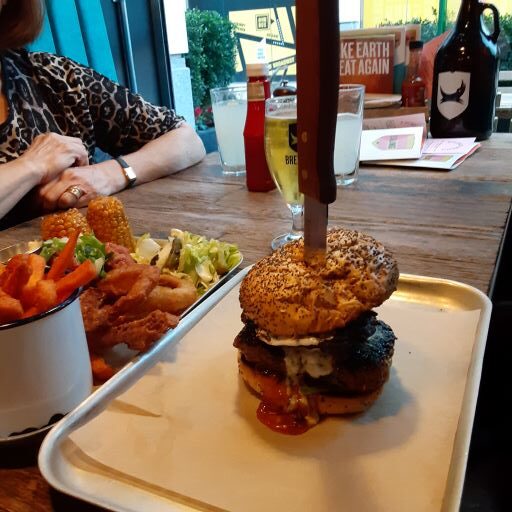
Gone are the days when a vegetarian had to survive on bland meatless soups or salads, or a slice of pizza – there is an abundance of vegetarian riches in restaurants across London. Be it Italian, Taiwanese or Middle Eastern restaurants, you are bound to find at least a few dishes on the menu that are plant-based and celebrate healthy eating. Sometimes these dishes are so appealing that you have non-vegetarians clamoring to have a taste out of your plate! Some of the international restaurants I tried were casual and trendy places in the heart of London. These included Middle Eastern, Korean and Malaysian neighborhood restaurants. The latter had a lot of Indian clients who are often vegetarian on different Hindu holy days (Mondays for Shivji, Tuesdays for Hanuman, Thursdays for Satya Sai and Saturdays for Shani) and so has an extensive pan-Asian menu to accommodate vegetarians. I felt part of a group rather than an outsider!
Some of my family who live in Ealing, a suburb of London, invited me out for a meal and since they are believers in Radhaswami, I knew I would be in solid vegetarian hands. However, what they served me was not a home-cooked Indian meal but a vegetarian vegan meal in a pub as they wanted me to get the full English experience! So we ate burgers, buffalo wings, chicken nuggets and fries – all plant-based – but looking scarily like the real thing. At home they cook perfect Indian vegetarian food and even their cakes are made without egg and they don’t use garlic or onion in their food, so this was their idea of a fun, chilled out evening for me to experience.
Since my niece lives in Dubai most of the time, her time in London was devoted to tasks she had to catch up on in that one month, so she hardly did any Indian cooking, leaving that task to magic helpers increasingly being used by well-to-do South Asians living or visiting Britain. These part-time immigrant workers, adept at Indian cooking, ensure that busy families are kept stocked in home-made rotis, Indian snacks and a variety of curries and kormas. By working at several homes, these part-time workers provide a livelihood for themselves and a comfortable lifestyle for their employers. As a vegetarian I was delighted to get home-made soul-satisfying spinach, cauliflower, daal and rotis with an ever-changing menu every day. These talented women also know how to make vegetarian biryani, dhokla and Sindhi koki or flatbreads, having picked up the tastes and recipes of different families.
While Britain has a massive South Asian population and scores of Indian-Pak grocery stores, especially in areas like Southall and Wembley which have immigrant demographics, the surprise was to see how Indian grocery items had infiltrated the aisles of the mainstream supermarkets. To walk through these, for a vegetarian was to be like a kid in a candy store – there were just so many frozen, ready-to-eat Indian delicacies from samosas and fritters to South Indian treats like idli and dosas. The Waitrose, one of the largest and most upscale stores, also gives out recipe cards to its customers. I was quite tickled to pick up one for Cauliflower and Chickpea Tikka Masala, a recipe I had not seen even in New York.
One has to remember that my trip took place in November 2021 when the pandemic was at its height and going out to eat was a real challenge since so many restaurants had shut. I was fortunate enough to make the acquaintance of Camellia Panjabi who is the author of the award-winning book, ‘Fifty Curries of India’. She along with her sister Namita Panjabi and brother-in-law Ranjit Mathrani are the brains behind MW Eats, a mini Indian restaurant empire in London with 8 Masala Zone restaurants, the elite Chutney Mary, the very sophisticated Amaya and also the oldest Indian restaurant in London – Veeraswamy, which was born in the same year as Her Majesty, Queen Elizabeth II!
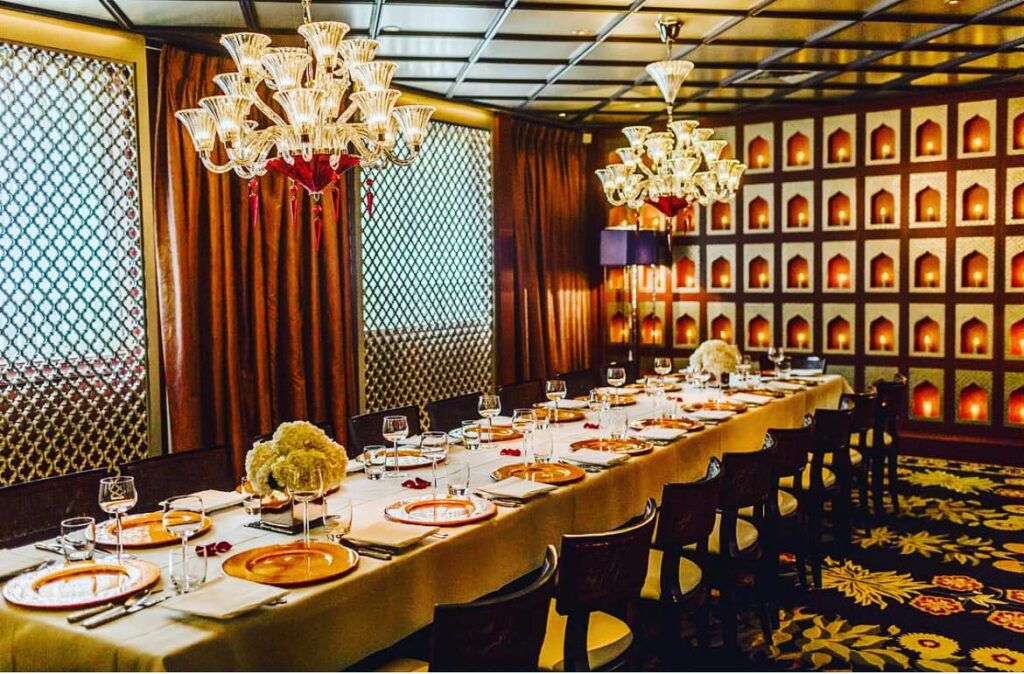
It was opened in 1926 by Edward Palmer, an Anglo-Indian British Indian army officer who was the grandson of an English general and an Indian princess. It is said famous guests had included Winston Churchill, King Gustav VI of Sweden, Jawaharlal Nehru, Indira Gandhi as well as Charlie Chaplin. This glamorous restaurant with its ornate palatial interiors was named by National Geographic as among the ten best Destination and Special Restaurants in the world. It was acquired by MW Eats in 1997 and restored it to its former glory.
It also won its first Michelin star in 2016 – The Michelin Guide inspectors said that “It may have opened in 1926 but this celebrated Indian restaurant just keeps getting better and better! The classic dishes from across the country are prepared with considerable care by a very professional kitchen. The room is awash with color and it’s run with great charm and enormous pride.” The restaurant has consistently won the star every year and remains among London’s great Indian restaurants, with its classic dishes and efficient kitchen.
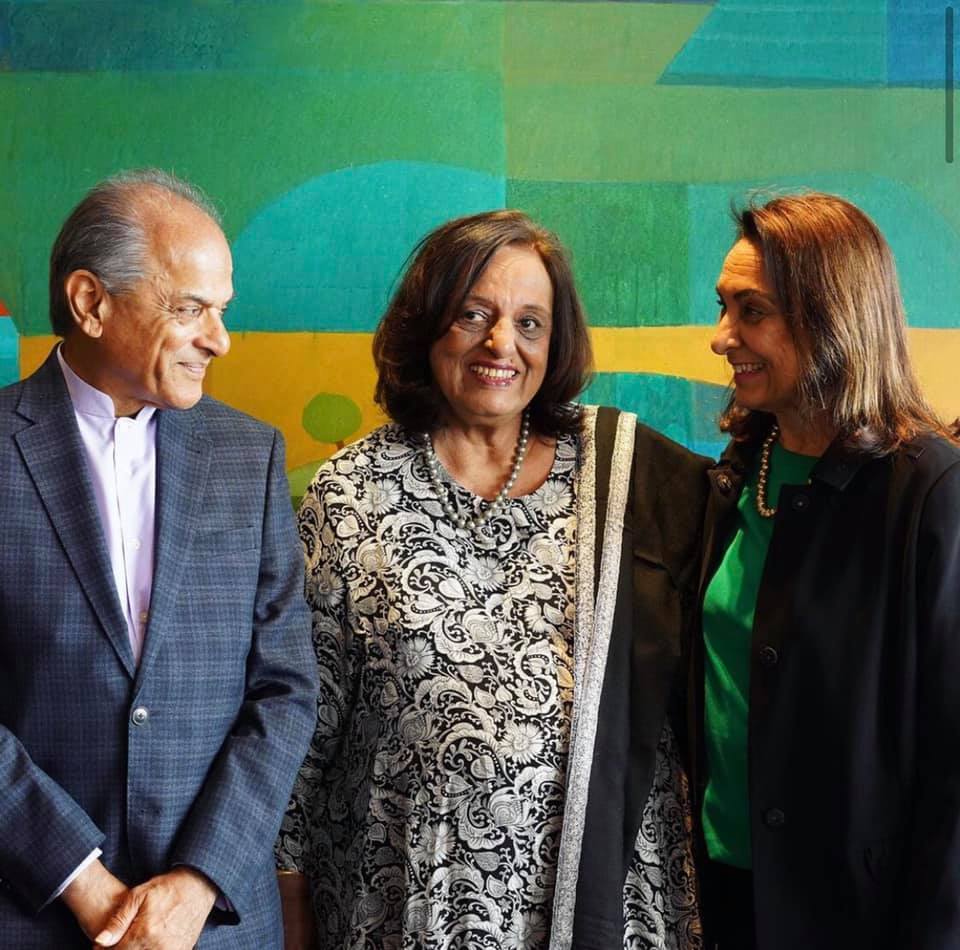
The late Queen had a soft spot for Veeraswamy and chose it to work with royal chefs for a reception that she hosted at Buckingham Palace in 2009 for the State visit of the President of India, and then to launch 2017 as the UK-India Year of Culture and India’s 70th year of Independence. The delicacies at this event included non-veg starters as well as many sophisticated vegetarian canapés such as Raj Puri, Paneer Squares with Herb Crust, Soya Gujjias, Pineapple Almond Halwa Tart, and Boondi and Chocolate Rock.
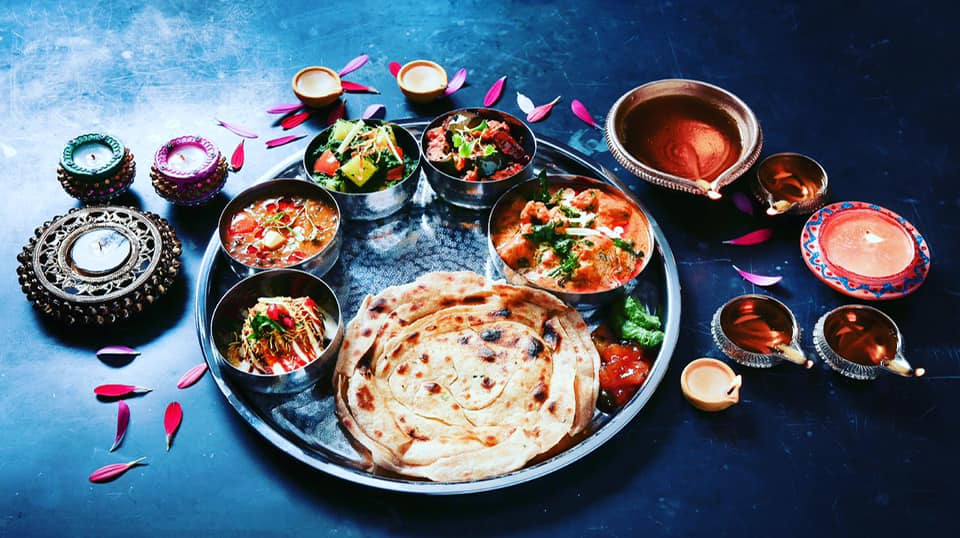
Camellia Panjabi came in the 1980s from Bombay when there were hardly any Indian restaurants in London. With a stellar career as marketing director at the Taj Hotels where she helped open 40 restaurants, she introduced modern Indian cuisine to London – classic cooking but served in contemporary fashion, with grazing small plates showcasing the best of India’s streets and markets. She joined her brother-in-law and sister who had both been bankers in starting MW Eats. The emphasis was on freshness and innovation – so India’s famous Pao Bhaji – the popular street snack was served with home-baked caramelized onion pao bread. Even many in India would not be familiar with Jalebi Chaat which served savory crisp jalebis combined with yogurt, tamarind, spices and fresh herbs. According to The Caterer magazine, “Namita and Camellia are regarded as leading authorities on authentic Indian cuisine which they have researched extensively in people’s homes, Maharaja’s palaces and wayside stalls rather than conventional restaurants.”
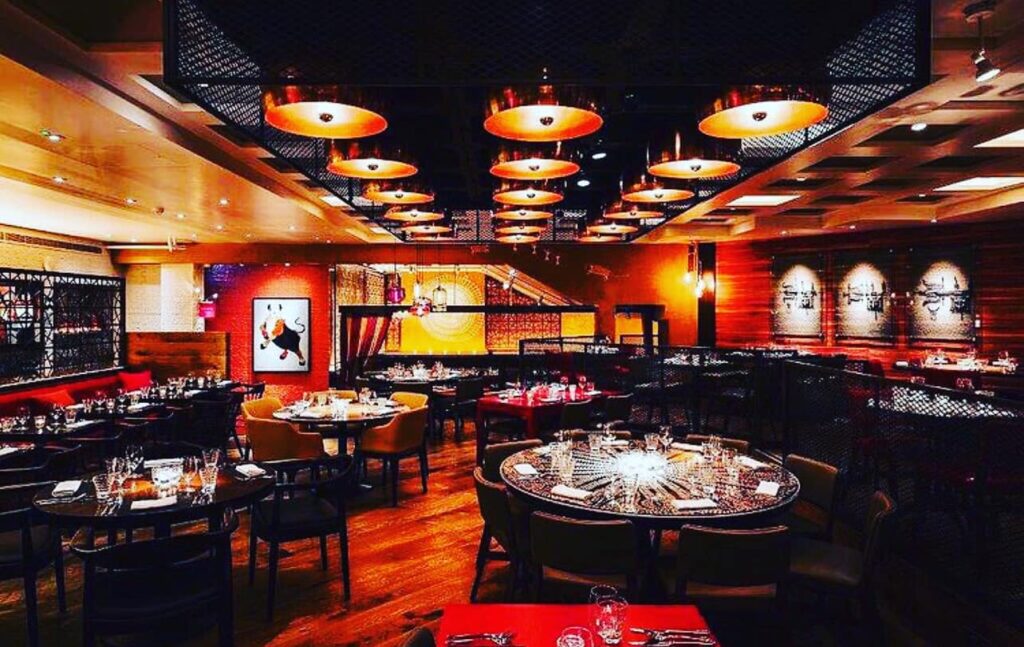
Camellia Panjabi has seen the worldwide push toward vegetarian choices: “I have noticed that even Middle Eastern clients who would normally go for a full meat-based menu have started incorporating a vegetarian biryani or other meatless sides. They too are reading the same media as everyone else and realize the importance of adding some vegetables to the meal,” she says. “The proportion has gone up but it’s still not shaken the majority. It’s not that it’s gone from 5% to 20%. It’s going upwards and even though it seems strange to put so many vegetarian dishes on the menu with less sales, we still make sure that it’s there.”
While most restaurants accommodate vegetarians by substituting tofu for meat in various dishes, in the MW Eats restaurants, there are scores of vegetarian dishes already present in the printed menu. “There is a full vegetarian section with main courses fully prepared, not put together at the last minute. There is a big proportion of vegetarian starters – four or five as compared to six non-vegetarian. We do tandoori artichoke, Chili Paneer with Date and Sesame as well as Char-grilled Aubergine – and all kinds of things you will not find anywhere in the world.”
In fact, Amaya is noted for its menus of grilled offerings and its huge silver tandoors are almost a part of the décor. While meat-eaters have always enjoyed a huge non-vegetarian array of kebabs, here vegetarian eaters are also treated really special for they have their own menu of grilled vegetables and plant-based delicacies such as vegetarian spinach kebabs and tikkis, all barbequed to get that special aroma, including Char-grilled Aubergine, Spinach Tikki with Spiced Fig and Watercress & Green Peas Seekh Kebabs. There are also world-class flatbreads of varied textures and ingredients to enrich the tandoori eating experience.
Each of these Indian restaurants has its own personality – Chutney Mary is at a power location close to St. James Palace, home of Prince Charles, and the Carlton Club, which is headquarters of the Conservative Party Politics. This is the prime financial district of Mayfair surrounded by 500 hedge funds, says Camellia.
The Masala Zone – now eight of them – are also popular with both Indians and non-Indians alike, especially the young. The atmosphere is fun and light and the price point is affordable with happening décor, design and art around. Being on a budget shouldn’t make you economize on joy and that is the atmosphere of these fun restaurants where you could probably taste something new every day, something from the streets and small towns of India. The vegetarian dishes are just part of the offerings, as they would be in India where even one family can have its share of vegetarians, vegans, non-vegetarians and ovo-vegetarians.
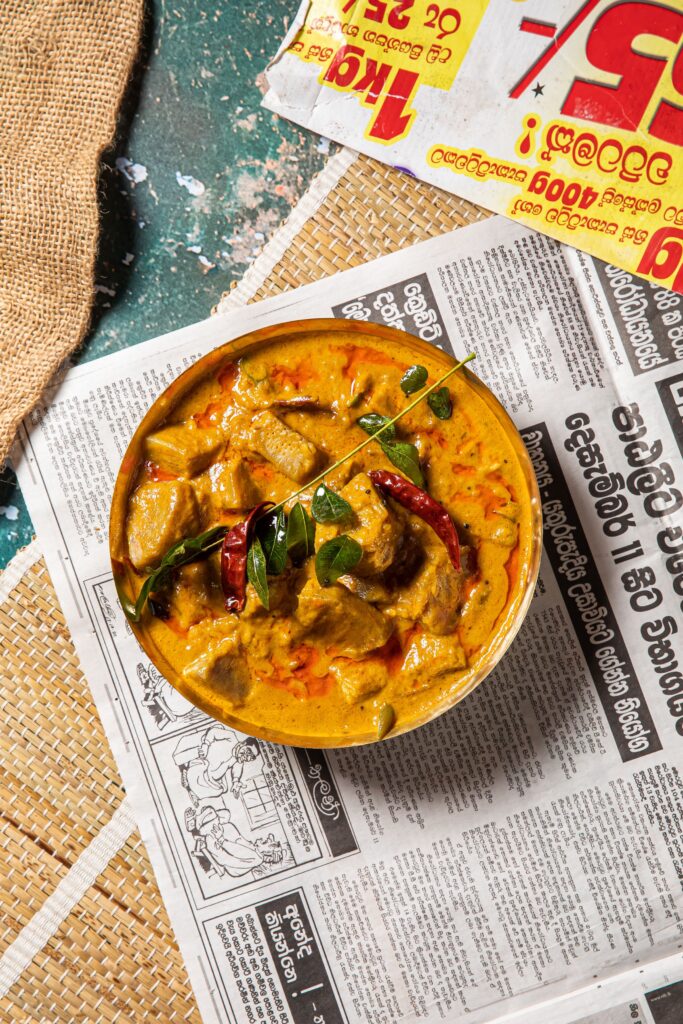
One can hardly talk about vegetarian food in London without touching upon the delights of Sri Lankan food. I had eaten a flavorful vegetarian Sri Lankan curry in Canada many years ago and the tangy taste has always stayed with me. So when I heard that in London an Indian family had a whole array of restaurants showcasing Sri Lankan food called Hoppers, I was immediately intrigued. I came to know about it just as I was departing London but connected on Whatsapp with Karan Gokani, the young entrepreneur who owns it. He happens to be from my Sindhi community and nowadays it’s a small world out on social media. I saw a lot of non-vegetarian food on the menu which seems to be the popular choice but I asked him about the vegetarian signature dishes and how popular plant-based dishes were.
Karan Gokani, who is Indian but from Sri Lanka told me he was fascinated by how different Sri Lankan food was but also, in some respects, how similar it was to the cuisine of Tamil Nadu and Kerala. A lawyer by trade he had always wanted to open a restaurant. His wife’s family already owns several Indian restaurants in London, and he founded Hoppers with them. The success led to the opening of three Hoppers and he just did a popup in Saudi Arabia too. Also about to be launched is a cookbook inspired by the cuisine of Hoppers.
“We’ve been flying the flag for Sri Lanka for a while but it’s very much Indian as well. Now obviously, both regions have a lot of great vegetarian food but it’s an equal match,” he says. “Meat is definitely some of the highlights, but we do an amazing aubergine curry and local vegetables like squash and kale. I wish I could get more Sri Lankan and Indian vegetables here but it’s difficult.”
At Hoppers he says he doesn’t need to tweak the food much because it’s naturally vegan, and they don’t use meat substitutes or soy – just showcase the vegetables. While there is a growing trend for people to eat more ethically, Hoppers doesn’t try to target any one single market and there’s something for everyone. He says, “Our menu is just naturally balanced. That’s our USP and we just follow traditional stuff – we follow a set of recipes that are time-tested and obviously without tweaks to it, without making it fusion.”
What is a popular signature vegetarian dish at Hoppers? Karan offers a barbecued cabbage which is grilled and charred and immersed in a mild coconut curry with crispy mushrooms and chili oil. He says it can be eaten with rice but is fantastic enough to eat by itself with a fork and knife. Besides BBQ Hispi Cabbage, Tamil Aubergine Kari, Breadfruit Kari, Jackfruit and Mushroom Kothu Roti are some of the special dishes at Hoppers.
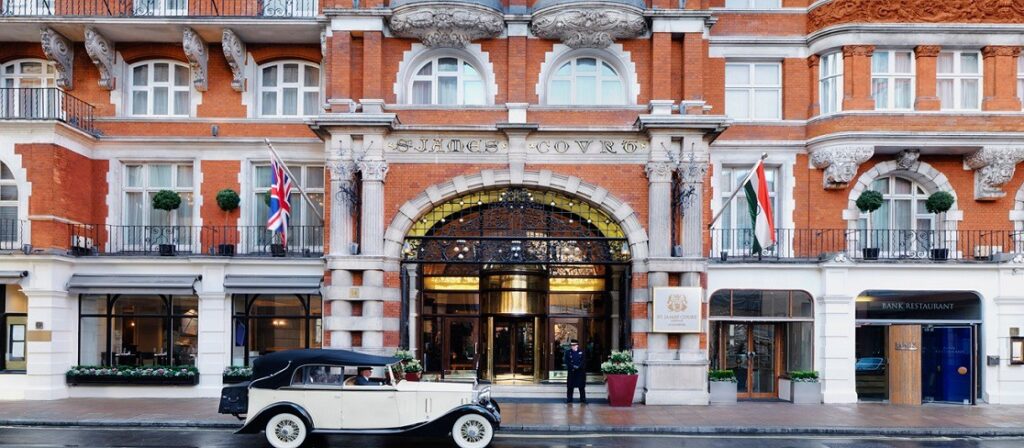
While in London, I the opportunity to visit the remarkable Quilon Restaurant in the Taj Hotel – and for me, it was a virtual vegetarian feast with a special tasting menu – dish after dish evoking the flavors of the south. Chef Sriram Aylur, who was originally headed for law studies, graduated instead from the Institute of Hotel Management, Catering Technology and Applied Nutrition in India. While still in college, he joined his father in the restaurant business before joining the luxury Taj Hotels in 1989.
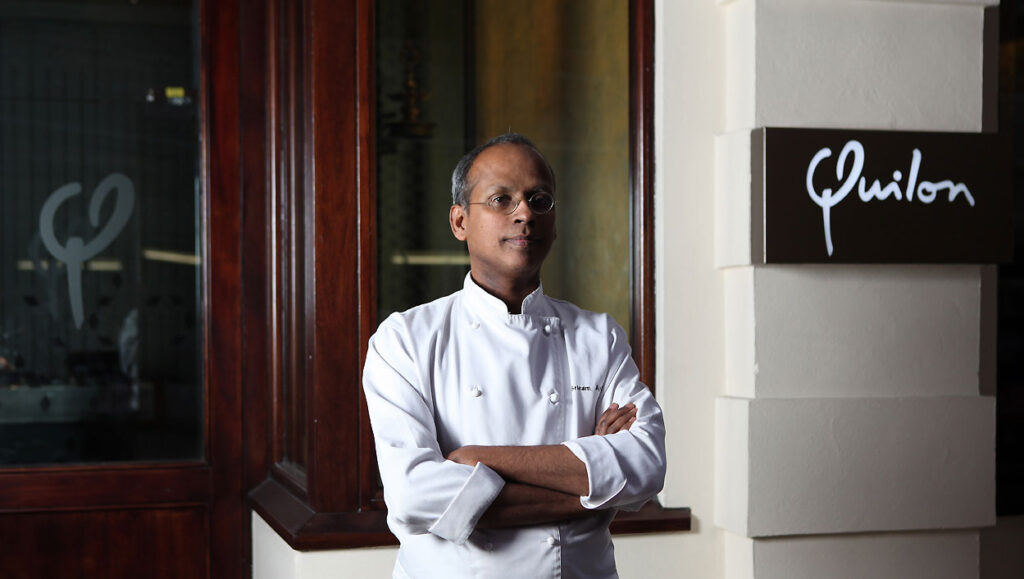
“It was here that I strengthened my thoughts and shaped my desire to uncover the potential of Southern Indian cuisine,” he says. He opened the Karavali which was ranked as the top five restaurants in India in 1995, and he was judged as one of the top five chefs in India. He believes South-west Indian cuisine has a lightness and multidimensional flavors which can appeal to western audiences but “to use the right technique and authentic ingredients from the recipe, without compromising the foundation of the cuisine was challenging.”
Sriram opened Quilon in the Taj Hotel in London in 1999 and made it his mantra to interpret his south-west roots for a new audience, using only the freshest ingredients and is the largest importer of South Indian spices. His food has won many awards including the Michelin Star in 2008 and every year since then.
Its’ vegetarian tasting menu can take a non-meat eater feel pampered and a prince: here are some its offerings: Drumstick soup, Stuffed Courgette with courgette flowers and paw paw chutney, Pulled Jackfruit Roast with steamed pathiri, scallions, baby cucumber, cherry mustard, mint chutney, Vegetable kola Chop, Jerusalem Artichoke Roast, Thalassery Vegetable Biryani, Coin Paratha, Yellow dal Clove Smoked, followed by Boondi Guava Cheesecake with Guava Kulfi
After eating a delicious brunch prepared by him, I was able to have a brief conversation on vegetarianism with him in his office, as he emerged from a busy morning in the kitchen, preparing tailor-made meals for so many guests, both vegetarian and non-vegetarian.
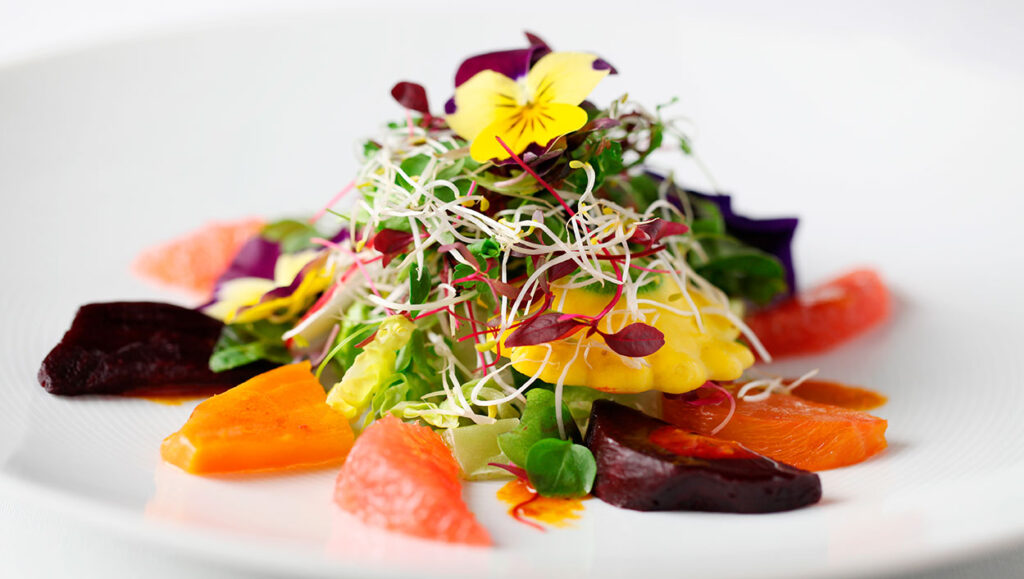
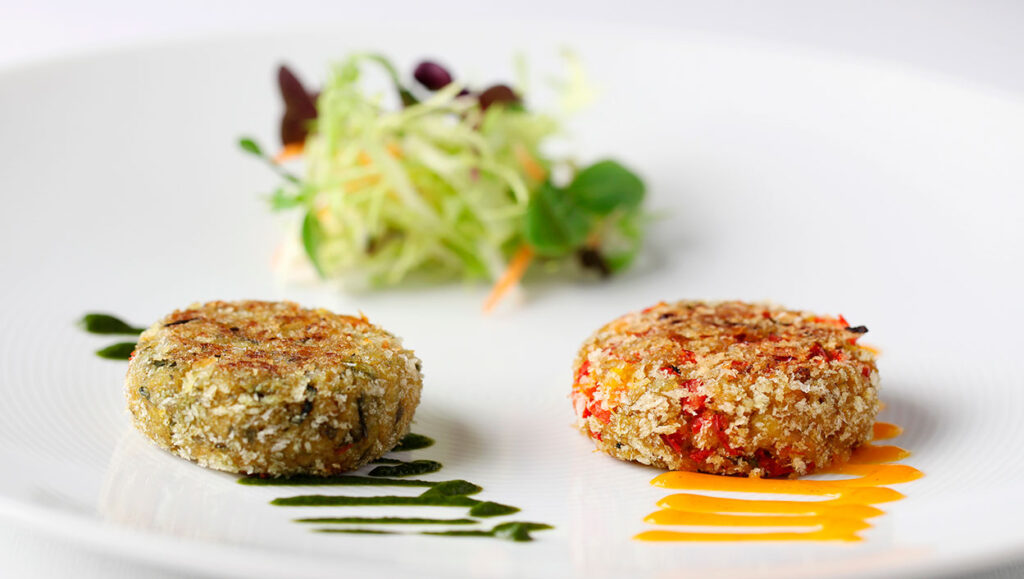
Sriram pointed out that in India 39 percent of the population is vegetarian anyway, and that even non-vegetarians in India consume largely vegetarian food which has been part of the Indian culture as a whole, be it due to religion or moral philosophy. He says that in Hinduism all animals are connected to some God and worshipped in different parts of India in different ways and there’s a great respect for its sanctity.
“I think people look up to India because it’s the only country in the world which has followed. cuisine in terms of vegetarianism so intensively and because of which there is so much variety,” he says “The idea that if you’re vegetarian you can’t have variety has been proven completely wrong in India and inspires a lot of western chefs and the western world. I think that is of great value and brings people to become aware of what they eating and what it does to their body.”
And so it’s definitely a good time to be a vegetarian traveler in London – you will not only get your vegetarian food but you will be well-fed; even mainstream Britishers are totally familiar with samosas and chicken tikka and are increasingly cooking vegetarian at home and also buying readymade Indian vegetarian meals.
Indeed, you get the flavors and influences of all the meals cooked by immigrants to the British Raj from different parts of the globe. An example is Chef Ravinder Bhogal who was born in Kenya to Indian parents and brings the many influences of her growing up in diverse cultures to her food and restaurant. Her debut restaurant Jikoni launched in 2020 introduced a vegan and vegetarian home delivery brand Comfort and Joy to London. She is also the author of ‘Proudly Inauthentic Recipes from an Immigrant Kitchen. Jikoni, meaning ‘kitchen’ in Swahili, is a London restaurant that draws on a mixed heritage, flavours and culinary traditions from Britain, East Africa, Asia and the Middle East.
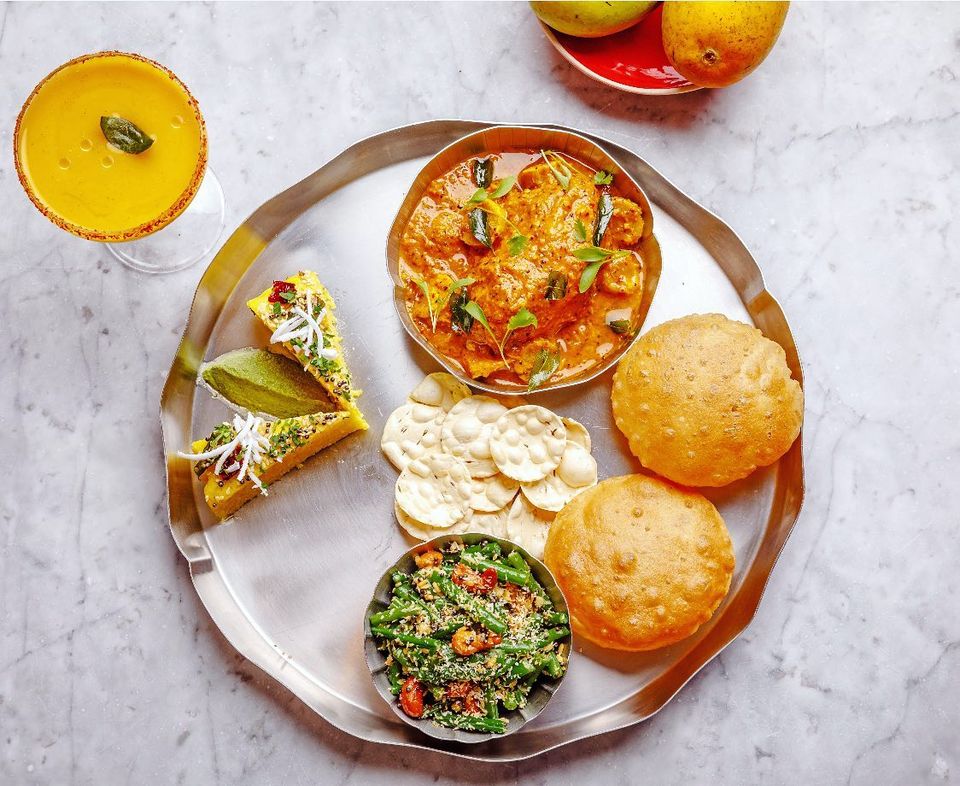
And that perhaps is the charm of the London food scene. Reading up on the creation of Jikoni, you read the designer notes: “We created a relaxed, disarming and homely space with hand-finished details, ingredient illustrations and carefully sourced textiles, supporting craft and co-operatives in India, East Africa and the Middle East. The open kitchen and bar were designed in a domestic style at a human scale and we created a spice pantry and the sky-lit stairwell, with details inspired by 1950’s homes in Nairobi.”
About the packaging for Jikoni’s vegan takeout, they offer a changing selection of vegan and vegetarian meal boxes, inspired by different cultures from around the world. Every meal is cooked using green energy, the packaging is 100% home compostable and with every order, a meal is prepared for London’s homeless by Nishkam SWAT.
Imagine the ancient food culture of India traveling over hundreds of years to the small island nation of the United Kingdom, once known as the mighty British Raj, and conquering with its noble food philosophy and healthful ideas, its myriad flavors and its jeweled spices – one British palate at a time. These South Asian immigrants came by boat and by air, on slave ships and chartered flights, as refugees, travelers and dreamers, each bearing their own family heritage and food secrets and shared them with the entire world.
And there’s More!
The Best Indian Restaurants in London honor the Vegetarian
The media always lists several Indian restaurants on the best of London lists. While none of these are totally vegetarian, one can see the mighty ‘V’ is present in all menus of these restaurants as the vegan and vegetarian customer becomes ever more important.
The Gymkhana has a special Vegetarian Tasting Menu –https://gymkhanalondon.com/wp-content/uploads/2022/04/Vault-Menus-April.pdf
For Pounds 110 it offers the Vault Vegetarian Tasting Menu which includes Tandoori Broccoli, Chilli & Green Mango Raita, Beetroot Chops Pao, Peanut Ghati Masala, Methi Malai Mutter Paneer and Khatta Meetha Baigan, along with Dal Maharani, Rajasthani Bhindi, Saag Makai – Bread Basket or Basmati Rice, and rich desserts.
Flora Indica (floraindica.com) had several vegetarian offerings and actually an entire vegan take away menu on its website including such delicacies as Kurmure Okra Fries, Chaat Achari Tender Broccoli, Cherry Tomato & Sour Cream, Jerusalem Artichoke Papdi Chaat, Pistachio Sautéed Curly Kale With Shredded Hispi Cabbage, Turmeric & Ginger.
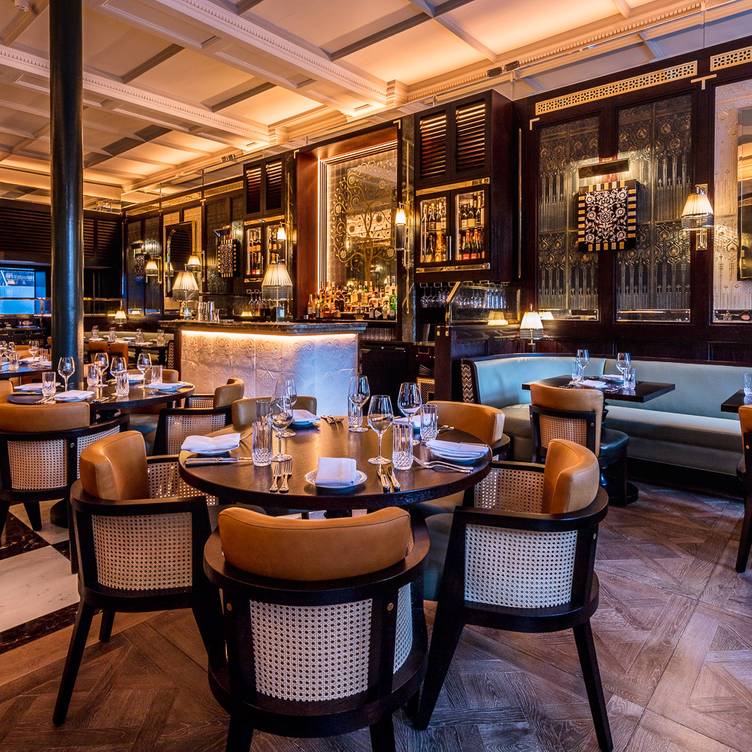
Jamawar also has a luscious vegan menu with offerings such as Chandni Chowk Ki Aloo Tikki (potato tikki, spiced white peas, yogurt, tamarind & mint chutney) Katyal Bhel (jackfruit cutlet, puffed rice & date-tamarind chutney) and Makai Palak Ke Goolar (spinach and rice dumplings, mustard yogurt, pine nuts, raisins, & feta).
Along with these hi-end restaurants, there are also some fun takeaway places like Motu Indian Kitchen – It has 8 locations and is owned by JKS Restaurants which owns several including Gymkhana, Trishna, Brigadiers and Hoppers. The site describes it thus: “Motu, a name derived from the affectionate Hindi term for “Fat Man”, serves indulgent home style Indian food, paying homage to the British love of a classic Indian takeaway. With a nod to the “dabbawalas” of India, who would traditionally deliver a packed meal for workers across Indian cities in what became known as a tiffin.” Bowing to the all important ‘V’ they too have a vegan Motu Box.
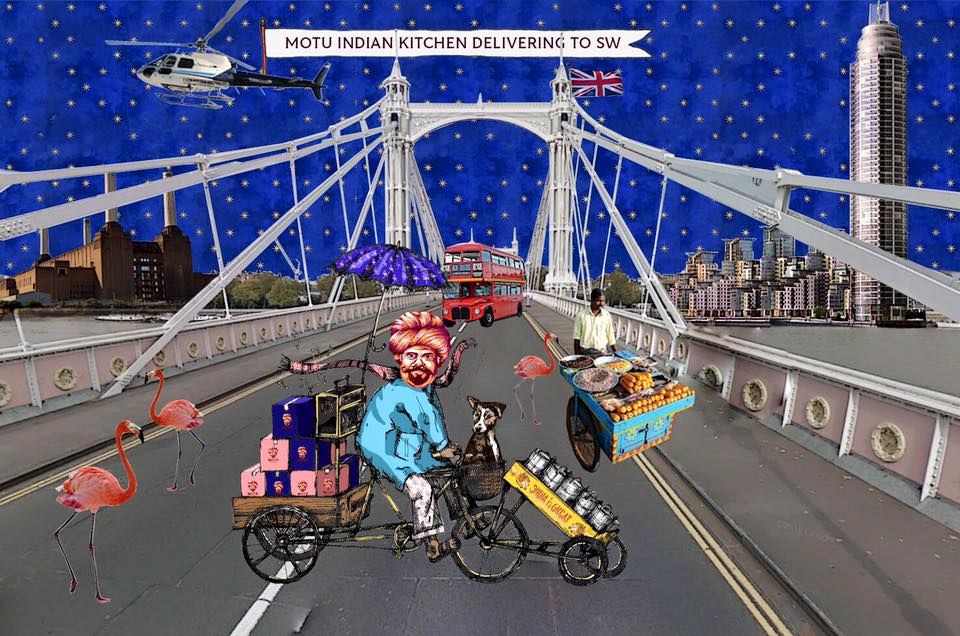
(This article first appeared in Hinduism Today, which is published in Hawaii.)

